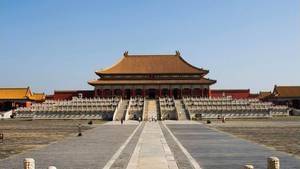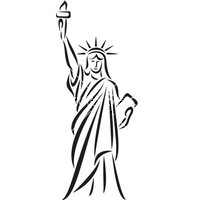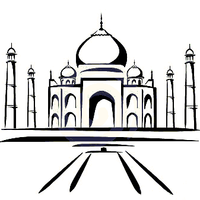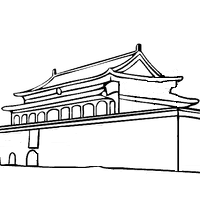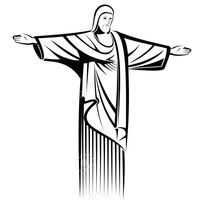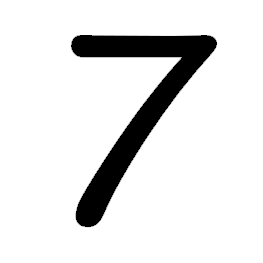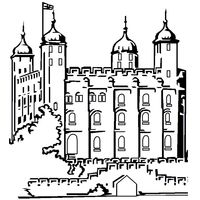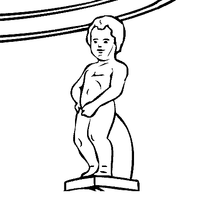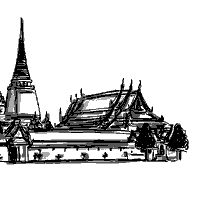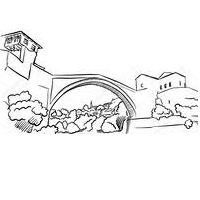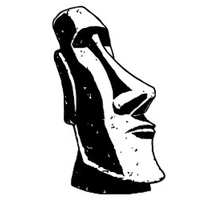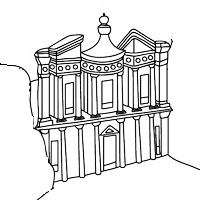The Forbidden City is a gigantic palace, it is a real city in the city, especially in the feudal period during which Beijing was much smaller than today. Such a palace required a large number of servants, especially since many of the rituals that would appear pompous today were common, which required to set up a great decorum at the slightest opportunity. This explains why so much staff was needed to run the palace administration as it was to serve the emperor during his private life.
The eunuchs and the servants
Among the servants of the emperor we must distinguish two types of people: servants and eunuchs. Eunuchs are exclusively men who have undergone testicular removal surgery. The servants, who should be called maids, were almost exclusively women. The eunuchs had a much more important role than the maids, they were often advisers of the emperor, or even they ruled China, during a time of weakness of the imperial family.
The life of an eunuchs
The surgical operation
Being a eunuch at the imperial court of China was an important charge, and many people agreed to undergo the operation necessary to enjoy the benefits of their office. In fact, the operation was successful in approximately 90% of the attempts, the failure rate being low the candidates were numerous. On the other hand, these failures could sometimes lead to death, so the decision had to be made with full knowledge of the facts. On this subject it is necessary to know that according to the Chinese beliefs a dead person can join the Gods only if his physical integrity is made. In the case of the eunuchs it was not possible, so to palliate the problem it was necessary that the surgeon gives to the operated ones the removed organs and that these last ones are conserved on either, for life. Thus the eunuchs always moved with a bag containing their attributes.
Politique role
Initially the eunuchs only had the role of taking care of the empress and the concubines. Very quickly they became the servants of all the palaces, effectively directing the army of maids put at the disposal of the emperor to carry out his daily tasks. The eunuchs have gradually gained importance in the life of the emperor, it must be said that apart from the royal family and the few ministers the life of the Emperor was to see only his eunuchs. No wonder they could have grown in importance.
It was in the seventeenth century that eunuchs had the most power. Between 1644 and 1661 the throne was at the Emperor Shunzi. The latter, weak, could not impose his authority. They took the opportunity to improve their dailies by intermingling, among other things, the affairs of the state. In the face of this de facto takeover, the emperor finally ordered that an iron sign be placed in front of the pavilion of union and peace, last pavilion before the Palace of the Supreme Harmony where the exercise of the power took place. This sign forbade the interference of eunuchs in government affairs. Generally the Ming Dynasty was quite permissive with the eunuchs while the next, the Qing, were particularly rigid.
But if one does not give too much importance to this episode, it is necessary to know that the eunuchs were for the emperors advisers of importance. One of the most striking proofs is the use of eunuch Wang Zhen for the renovation of the Forbidden City. It was under his orders that the wall was strengthened, that the corner towers were built, that the river with golden waters was installed, and so on. Here, Zhen served as an architect.
Yongle, the emperor who had the palace built in 1406, sent his favorite eunuch, Zheng He, on an exploratory mission for China. His goal would be to establish links with all the people he could meet during his travels. In this case, a eunuch played the role of ambassador.
Role in everyday life
The eunuchs were the base of the operation of the forbidden city. Donors, performers, they were hierarchically organized and took care of daily tasks, especially those related to the life of the imperial family. As the benefits to be provided were numerous and frequent, they enjoyed benefits in kind. For example, the clothes of the royal family were unique pieces made for one day only. They were expensive, of course, and once they were worn they could be resold ... by the eunuchs, of course. It was a bit the same for the various positions needed for everyday life: food, entertainment, etc.
In everyday life the life of a eunuch was not that simple. Well-off, they were. Responsible too. But having so many people with similar functions generated inevitable conflicts, especially as to be sure that the emperor enjoyed a service, the protocol did not hesitate to multiply the speakers, each seeking to pull the cover to him.
Number and places of life
According to ancient texts the number of eunuchs to the forbidden city was to reach 70,000 at certain times, but this figure seems exaggerated. During the Qing Dynasty the number decreased as a law was passed prohibiting more than 2260 eunuchs. But we can estimate that the true figure was between the two. When the fall of the last dynasty came in 1912 there were only 470 eunuchs left in the palace. The last one died in 1996, it was Sun Yaoting.
When they lived in the Forbidden City, the eunuchs were, for the most part, housed in the inner courtyard, in the eastern part.
Goal of the castration
The goal of castration has never been to prevent staff members of the Forbidden City from having sex with concubines, as one might think. In fact eunuchs have never been guardians of female virtue, this is a Judeo-Christian reading unfit for the Eastern situation. If castration occurred after puberty, which was the case most often, the castrato could have an erection. Legend has it that, on the contrary, eunuchs were wanted lovers because they could not ejaculate, they could keep the erection longer.
The real purpose of the castration was filial, the men close to the concubines, and even more of the empress, not having to have illegitimate children, it is the castration which was put in place as a means of protection. Prevented from having children, the eunuchs were never tempted to overthrow the power to create a new dynasty, by the force of things.
The life of the servants
The servants of the palace had much less power than the eunuchs, they were the members of the people who had the right to enter the palace. You should know that when you were outside the palace, it was forbidden even to look at it, the Chinese had to look away when they passed nearby. So being able to enter it was an important privilege and these people were getting a great deal of respect for their peers.
Less well paid than the eunuchs they still enjoyed benefits, mostly in kind, because they were one of the links in the chain that ran the palace.
Under the Ming Dynasty there were up to 9000 servants, but the Qing Dynasty reduced this number is only 300, although it is unlikely that this reduction could actually be made.
See also:




